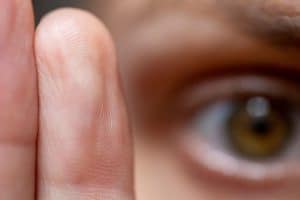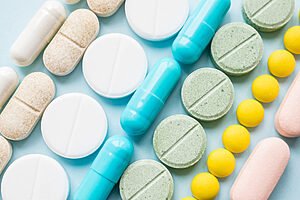Taking the first step towards recovery from drug addiction is a courageous decision that can transform your life. While the journey may seem daunting, understanding the process and available resources can make it more manageable. This comprehensive guide aims to provide you with in-depth information on how to begin your path to sobriety, detailing various treatment options, and offering guidance on navigating the complexities of addiction recovery.
Acknowledging the Problem
Recognizing that you have a problem with drug addiction is the foundation of recovery. This realization can be challenging and emotionally taxing, but it’s an essential step towards reclaiming your health and well-being. Signs that you may need help include:
- Inability to stop using drugs despite repeated attempts to quit
- Experiencing intense cravings and withdrawal symptoms when not using
- Neglecting responsibilities at work, school, or home due to drug use
- Continuing drug use despite negative consequences to health, relationships, or legal status
- Isolating yourself from friends and family to hide drug use
- Engaging in risky behaviors while under the influence
- Needing increasing amounts of the drug to achieve the desired effect (tolerance)
- Spending significant time and resources obtaining, using, or recovering from drug use
If you identify with these signs, it’s crucial to understand that addiction is a complex disease, not a moral failing. Recognizing the need for help is a sign of strength and the first step towards recovery.
Breaking the Stigma: Understanding Addiction as a Disease
Before delving deeper into treatment options, it’s important to address the stigma surrounding addiction. Drug addiction is a chronic disease that affects the brain and behavior, leading to an inability to control the use of legal or illegal drugs. Like other chronic diseases, addiction often involves cycles of relapse and remission. Without treatment or engagement in recovery activities, addiction is progressive and can result in disability or premature death.

Understanding addiction as a disease can help reduce shame and encourage seeking help. It’s a condition that requires professional treatment, much like diabetes or heart disease.
Reaching Out for Help
Once you’ve acknowledged the need for help, the next crucial step is to reach out. This can be one of the most challenging aspects of seeking recovery, but it’s also one of the most important. Options for reaching out include:
- Talking to a trusted friend or family member about your struggles
- Consulting with your primary care physician for a medical assessment and referral
- Contacting an addiction treatment center directly for an initial assessment
- Calling a drug addiction hotline for guidance and support
- Attending a support group meeting, such as Narcotics Anonymous or SMART Recovery
- Reaching out to a therapist or counselor specializing in addiction
Remember, seeking help is a sign of strength and self-awareness. It takes courage to confront addiction and make positive changes in your life. You don’t have to face this challenge alone.
Understanding Treatment Options
Drug addiction treatment is not a one-size-fits-all approach. Various treatment options are available, each designed to address different needs and circumstances. Understanding these options can help you make an informed decision about your recovery journey.
Inpatient Treatment: Intensive, Immersive Care
Inpatient or residential treatment involves living at a treatment facility for a specified period, typically 30 to 90 days, though longer stays may be necessary for some individuals. This intensive approach provides 24/7 care and support, removing you from environments that might trigger drug use.
Key features of inpatient treatment include:
- Structured daily routines focused on recovery
- Individual and group therapy sessions
- Medical supervision, especially during detox
- Holistic treatments such as yoga, meditation, or art therapy
- Nutrition and wellness education
- Family therapy sessions
- Aftercare planning for continued support post-treatment
Inpatient treatment is often recommended for severe addictions, when a stable home environment is lacking, or when co-occurring mental health disorders require intensive care.
Outpatient Treatment: Flexibility and Community Integration
Outpatient programs allow you to live at home while attending regular therapy sessions and treatments. This option offers more flexibility and is often suitable for those with milder addictions, strong support systems at home, or who have work or family commitments that prevent extended absences.
Types of outpatient treatment include:
- Intensive Outpatient Programs (IOP): Typically involve 9-20 hours of treatment per week
- Partial Hospitalization Programs (PHP): More intensive, usually 20+ hours per week
- Standard Outpatient Care: Less intensive, often 1-2 sessions per week
Outpatient treatment can also serve as a step-down option after completing an inpatient program, providing continued support as you transition back to daily life.
Medication-Assisted Treatment (MAT): Combining Medication and Behavioral Therapy
MAT combines behavioral therapy with medications to treat substance use disorders. This approach is particularly effective for opioid and alcohol addictions. Medications can help manage withdrawal symptoms, reduce cravings, and normalize brain chemistry, making it easier to focus on recovery.
Common medications used in MAT include:
- Methadone, buprenorphine, and naltrexone for opioid addiction
- Naltrexone, acamprosate, and disulfiram for alcohol addiction
It’s important to note that MAT is not simply substituting one drug for another. When properly administered, these medications do not create a new addiction. Instead, they help restore balance to brain circuits affected by addiction, allowing the brain to heal while the person works towards recovery.
Dual Diagnosis Treatment
For individuals struggling with both addiction and mental health disorders, dual diagnosis treatment addresses both issues simultaneously. This integrated approach is crucial for long-term recovery success, as untreated mental health issues can often lead to relapse.

Common co-occurring disorders include:
- Depression
- Anxiety disorders
- Post-traumatic stress disorder (PTSD)
- Bipolar disorder
- Attention-deficit/hyperactivity disorder (ADHD)
Dual diagnosis treatment typically involves a combination of psychotherapy, medication management, and holistic approaches tailored to address both the addiction and the co-occurring mental health disorder.
What to Expect In Treatment
Understanding the general flow of addiction treatment can help alleviate anxiety about the process. While individual experiences may vary, most treatment programs follow a general structure:
- Assessment: A comprehensive evaluation of your physical and mental health, substance use history, and personal circumstances.
- Detox: If necessary, a medically supervised process to safely manage withdrawal symptoms.
- Treatment Planning: Development of a personalized treatment plan based on your assessment.
- Therapy: Engagement in various therapeutic modalities, including individual counseling, group therapy, and family therapy.
- Skill Building: Learning coping strategies, stress management techniques, and relapse prevention skills.
- Aftercare Planning: Developing a plan for ongoing support and care after the initial treatment phase.
Choosing the Right Treatment Approach
Selecting the most appropriate treatment option depends on several factors. It’s important to have an honest discussion with addiction specialists to determine the best course of treatment based on your individual needs and circumstances. Key factors to consider include:
- The severity and duration of your addiction
- The type of substance(s) you’re addicted to
- Your personal responsibilities and commitments
- The presence of co-occurring mental health disorders
- Your support system and home environment
- Your insurance coverage and financial situation
- Previous treatment experiences and outcomes
- Your personal preferences and comfort level with different treatment approaches
Remember, the most effective treatment is one that you’re committed to and feel comfortable with. It’s okay to ask questions and express concerns when exploring treatment options.
Navigating Insurance and Financial Assistance
The cost of addiction treatment shouldn’t be a barrier to getting help. Many insurance plans cover addiction treatment services, thanks in part to the Mental Health Parity and Addiction Equity Act, which requires insurance coverage for mental health and substance use disorders to be comparable to coverage for medical and surgical care.
To navigate insurance coverage:
- Review your insurance policy or contact your insurance provider to understand your coverage for substance use disorder treatment
- Speak with the treatment center’s admissions team about insurance verification and coverage
- Inquire about sliding scale fees or payment plans if you’re underinsured or uninsured
- Explore state-funded treatment options or local non-profit organizations that offer financial assistance
- Consider applying for grants or scholarships offered by some treatment centers or advocacy organizations
- Look into employee assistance programs (EAPs) if you’re employed, as these often cover some form of addiction treatment
Many treatment centers have financial counselors who can help you understand your options and find ways to make treatment affordable. Remember, investing in your recovery is investing in your future health, relationships, and overall quality of life.
The Role of Support Systems in Recovery
While professional treatment is crucial, the support of family and friends can significantly impact recovery success. Educating loved ones about addiction and involving them in the treatment process can create a strong support network for long-term recovery.
Support systems can help by:
- Providing emotional support and encouragement
- Helping to identify and avoid triggers
- Participating in family therapy sessions
- Assisting with practical needs during treatment
- Joining support groups for families of individuals with addiction
Additionally, peer support groups like Narcotics Anonymous or SMART Recovery can provide ongoing support and community connection throughout the recovery journey.
The Importance of Aftercare in Maintaining Recovery
Recovery doesn’t end when initial treatment is completed. Aftercare is a crucial component of maintaining long-term sobriety. Aftercare plans often include:
- Ongoing therapy or counseling sessions
- Participation in support groups
- Continued medication management, if applicable
- Regular check-ins with treatment providers
A solid aftercare plan helps reinforce the skills learned in treatment and provides support during the transition back to daily life.
Taking the First Step with Swift River: Your Partner in Recovery
At Swift River, we understand the complexities of seeking help for drug addiction. Our team of experienced professionals is committed to providing compassionate, evidence-based care tailored to your individual needs. We offer a comprehensive range of treatment options, from inpatient to outpatient programs, and specialize in dual diagnosis treatment.
Our approach to treatment includes:
- Personalized treatment plans based on thorough assessments
- Evidence-based therapies including cognitive-behavioral therapy (CBT) and dialectical behavior therapy (DBT)
- Holistic treatments to address mind, body, and spirit
- Family involvement and therapy
- Aftercare planning and support
- A serene, supportive environment conducive to healing
Our admissions team is ready to guide you through every step of the process, from insurance verification to creating a personalized treatment plan. We believe in your ability to recover and are here to support you throughout your journey to sobriety.
Don’t let addiction control your life any longer. Take the first step towards recovery today by calling our admissions team at 413-570-9698. Our caring professionals are available 24/7 to answer your questions, address your concerns, and help you start your journey to a healthier, drug-free life. Remember, recovery is possible, and help is available. You don’t have to face addiction alone – reach out to Swift River today and take that crucial first step towards reclaiming your life.













